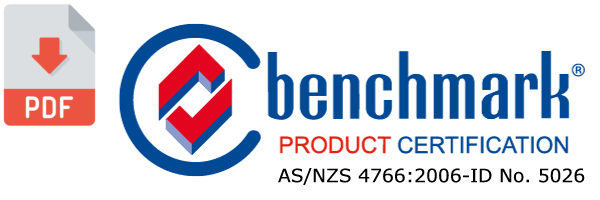When it comes to using the rain water harvested by rainwater tanks in cities such as Brisbane and Sydney, we immediately think of the outdoor benefits. Activities such as watering the garden or washing the car are obvious ways to take advantage of the free collected rain water, avoiding reliance on mains water supply and decreasing your water bills.
However, rain water harvesting can be just as helpful indoors as it is outdoors. Did you know that your rainwater tank can also be hooked up to meet your water needs inside your home, particularly in the rooms that use it the most, such as the bathroom and laundry.
It is estimated that the bathroom and laundry account for more than half the average household’s water usage, which means using free harvested rainwater can have a significant positive impact on your water bills.
Soft and hard water
There are generally two different types of water – hard and soft water.
Hard water is water that has high mineral content and is formed when water flows and filters through deposits of calcium and magnesium-containing minerals such as limestone, chalk and dolomite. You know you are using hard water if soapy solutions don’t lather well or if limescale forms in your kettle and water heater. While the World Health Organization says that “there does not appear to be any convincing evidence that water hardness causes adverse health effects in humans”, soft water is generally more desirable when it comes to non-consumption usage as it extends the lifespan of plumbing and some household appliances.
Soft water do not contain the high mineral content present in hard water and is more compatible with soap, producing less of the dreaded soap scum. Soap scum isn’t simply a cleaning nightmare, it has the potential to also clog plumbing. The great news is that you can have easy access to free soft water when you have a rainwater tank, because rainwater – naturally distilled during the water cycle of evaporation, condensation and precipitation – is soft water.
So what are the benefits for using rain water indoors?
Your bathroom
Did you know that flushing accounts for up to 20% of your household’s water usage? Connecting your rainwater tank to your toilet means you won’t be flushing away all that precious drinking water. And because it is soft water, rain water also lathers better, which means you could be using less soap and shampoo in the shower and bath. Not only that, you won’t need to scrub that shower curtain or bath tub as often because lesser soap scum is produced!
Your laundry
You can reduce your mains water usage by up to another 20% if your dirty laundry is cleaned using rain water. Also, in hard water, much of the laundry detergent goes towards softening the water instead of cleaning the clothes. As such, you will find that you need to use less detergent by using rain water – and it will lather better too! Not to mention of course, using rain water can also help your washing machine last longer.
Your kitchen
For the same reason as the washing machine, your dishwasher will also last longer and perform better if you use rain water. Rain water can even be used in other kitchen activities – cleaning, cooking and drinking – so long as you ensure that your water tank is maintained properly and proper filters are installed.
Take advantage of the outdoor and indoor benefits of a rainwater tank today. Contact SUPATANK and we will be able to give you advice on the best type of rain water tank and installation required to meet your family’s needs.


